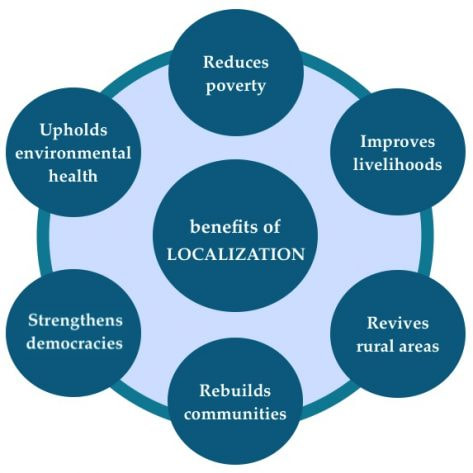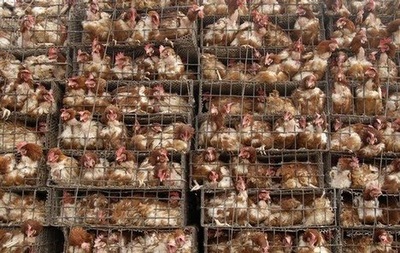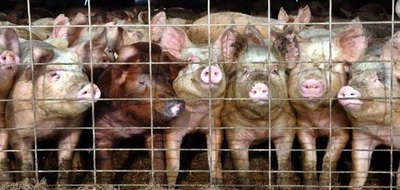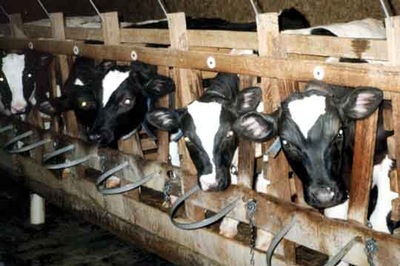LOCALISATION CAMPAIGN
Across the world, people are coming to realise that today’s crises ecological collapse, economic instability, social disintegration, even terrorism are inextricably linked to a global economy dependent on rampant consumerism, financial speculation and “free” trade.
But what is the alternative?
We believe that the answer lies in economic localisation: in other words, shortening the distance between producers and consumers by encouraging diversified production for domestic needs, instead of specialised production for export.
Localisation does not mean eliminating international trade, or reducing all economic activity to a village level. It’s about shifting the power from transnational corporations to nation states, while simultaneously building up regional self-reliance.
Specifically, that means:
Using our taxes, subsidies and regulations to support the needs of people and communities, rather than big business.
Insisting that banks and businesses be place-based and subject to both genuine democratic control and ecological limits.
Local economies rebuild our connections to one another and to the natural world – connections that are essential not only for our wellbeing, but for our survival.
Across the world, people are coming to realise that today’s crises ecological collapse, economic instability, social disintegration, even terrorism are inextricably linked to a global economy dependent on rampant consumerism, financial speculation and “free” trade.
But what is the alternative?
We believe that the answer lies in economic localisation: in other words, shortening the distance between producers and consumers by encouraging diversified production for domestic needs, instead of specialised production for export.
Localisation does not mean eliminating international trade, or reducing all economic activity to a village level. It’s about shifting the power from transnational corporations to nation states, while simultaneously building up regional self-reliance.
Specifically, that means:
Using our taxes, subsidies and regulations to support the needs of people and communities, rather than big business.
Insisting that banks and businesses be place-based and subject to both genuine democratic control and ecological limits.
Local economies rebuild our connections to one another and to the natural world – connections that are essential not only for our wellbeing, but for our survival.
Localisation grounds economics in reality
Localisation is founded in real productivity for genuine human needs, with respect for the rich diversity of cultures and ecosystems worldwide.
Localisation reduces our ecological footprint
By shortening the distance between production and consumption, localisation minimizes transport, packaging, and processing thereby cutting down on waste, pollution, and greenhouse gas emissions.
Localisation provides fuller employment
Localised economies rely more on human labor and creativity and less on energy - intensive technological systems. This increases the
number of jobs while reducing the use of natural resources.
Localisation strengthens democracy
By spreading economic and political power among millions of individuals and small businesses rather than a handful of corporate monopolies, localisation revitalises the democratic process.
Localisation rebuilds community and increases wellbeing
As the scale and pace of economic activity are reduced, anonymity gives way to face-to-face relationships and a closer connection to
Nature. This in turn leads to a more secure sense of personal and cultural identity.
Localisation is founded in real productivity for genuine human needs, with respect for the rich diversity of cultures and ecosystems worldwide.
Localisation reduces our ecological footprint
By shortening the distance between production and consumption, localisation minimizes transport, packaging, and processing thereby cutting down on waste, pollution, and greenhouse gas emissions.
Localisation provides fuller employment
Localised economies rely more on human labor and creativity and less on energy - intensive technological systems. This increases the
number of jobs while reducing the use of natural resources.
Localisation strengthens democracy
By spreading economic and political power among millions of individuals and small businesses rather than a handful of corporate monopolies, localisation revitalises the democratic process.
Localisation rebuilds community and increases wellbeing
As the scale and pace of economic activity are reduced, anonymity gives way to face-to-face relationships and a closer connection to
Nature. This in turn leads to a more secure sense of personal and cultural identity.
Our activities include:
Spreading awareness about the growing threats to democracy, society and the environment posed by the deregulation of global trade and finance;
Sharing information about the worldwide kaleidoscope of initiatives aimed at localising economies, rebuilding resilience, strengthening food security, and protecting cultural integrity;
Promoting local alternatives - at the grassroots and policy level to large-scale mass-production for basic needs, especially food;
Fostering an understanding of the importance of cultural and biological diversity for peace, economic security, and both personal and planetary health;
Forging partnerships in support of economic localisation around the world.
Localisation can unite diverse groups in both North and South - from business leaders and labor unions to farmers,
social justice activists, environmentalists and indigenous people- in a movement powerful enough to turn the tide and point the
way to a better world.
Spreading awareness about the growing threats to democracy, society and the environment posed by the deregulation of global trade and finance;
Sharing information about the worldwide kaleidoscope of initiatives aimed at localising economies, rebuilding resilience, strengthening food security, and protecting cultural integrity;
Promoting local alternatives - at the grassroots and policy level to large-scale mass-production for basic needs, especially food;
Fostering an understanding of the importance of cultural and biological diversity for peace, economic security, and both personal and planetary health;
Forging partnerships in support of economic localisation around the world.
Localisation can unite diverse groups in both North and South - from business leaders and labor unions to farmers,
social justice activists, environmentalists and indigenous people- in a movement powerful enough to turn the tide and point the
way to a better world.
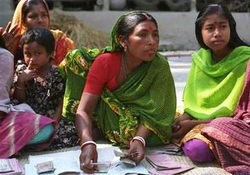
ADVANCING WOMEN'S RIGHTS AND ACHIEVING GENDER EQUALITY
We are strongly supporting the cause of gender equality by joining national and international political action and creating momentum for change. We are affiliated with and are campaigning on behalf of UNIFEM (part of UN Women), which is the women's fund at the United Nations, dedicated to advancing women's rights and fostering women's empowerment. Gender equality is absolutely essential to achieving development and to building just societies.
It is the fundamental human right of every woman to live a life free from discrimination and violence.
We are working within the areas of enhancement of women's economic security and human rights and ending violence against women. Gender equality is essencial to achieve sustainable development and to build just societies.
Gender equality is not only a basic human right, but its achievement has enormous socio-economic ramifications. Empowering women fuels thriving economies, spurring productivity and growth. Yet gender inequalities remain deeply entrenched in every society. Women lack access to decent work and face occupational segregation and gender wage gaps. They are too often denied access to basic education and healthcare. Women in all parts of the world suffer violence and discrimination. They are under- represented in political and economic decision- making processes.
We are passionate champions for women and girls worldwide, providing them with a voice at the local, regional and global levels.
We are strongly supporting the cause of gender equality by joining national and international political action and creating momentum for change. We are affiliated with and are campaigning on behalf of UNIFEM (part of UN Women), which is the women's fund at the United Nations, dedicated to advancing women's rights and fostering women's empowerment. Gender equality is absolutely essential to achieving development and to building just societies.
It is the fundamental human right of every woman to live a life free from discrimination and violence.
We are working within the areas of enhancement of women's economic security and human rights and ending violence against women. Gender equality is essencial to achieve sustainable development and to build just societies.
Gender equality is not only a basic human right, but its achievement has enormous socio-economic ramifications. Empowering women fuels thriving economies, spurring productivity and growth. Yet gender inequalities remain deeply entrenched in every society. Women lack access to decent work and face occupational segregation and gender wage gaps. They are too often denied access to basic education and healthcare. Women in all parts of the world suffer violence and discrimination. They are under- represented in political and economic decision- making processes.
We are passionate champions for women and girls worldwide, providing them with a voice at the local, regional and global levels.
CAMPAIGN FOR COMPASSIONATE LIVING
"The health of the planet and all the creatures on it depends on phasing out the lifestock farming and giving the vast acreages and resources thus released to trees. A future of our children depends on restoring the forests worldwide. "
Kathleen Jannaway
"The health of the planet and all the creatures on it depends on phasing out the lifestock farming and giving the vast acreages and resources thus released to trees. A future of our children depends on restoring the forests worldwide. "
Kathleen Jannaway
The aim of our campaign is to spread awareness of the factors that will achieve a sustainable lifestyle, free from destructive exploitation of animals, people and the Earth, to inspire necessary action and offer helpful ideas and tips for daily living. There is a widespread concern about the human population explosion, but few people realise that the Earth is having to support a second population explosion - that of the animals bred to satisfy outdated dietary habits. The Earth cannot continue to support this double burden.
Factory farmed animals are deprived of all significance as living beings, reduced to the status of food machines, they suffer painful and humiliating treatment and traumatic journeys to death in horrific conditions.
We are campaigning for livestock farming to be phased out and land and other resources used to produce plants for food. Farmed animals yield nothing that humans need that cannot be produced more efficiently and humanely directly from plant sources.
If everyone in the world ate a plant based diet, global food waste would be reduced and food economies were organised more intelligently and fairly, there would be enough food produced for everyone. We at SPF are promoting the growing of food for a vegan plant- based diet without the use of chemicals or animal products and additives. The production of food through sustainable methods of vegan organic horticulture and agriculture, including permaculture will reduce the on the planet's resources.
We strongly endorse and promote a healthy vegan diet based on crops grown in our home climate whenever possible, to reduce the environmental impact in terms of food miles and maximise the nutritional content of crops by ensuring they are eaten as quickly as possible after harvesting. We ask people to question their dietary habits and avoid purchasing foods that have been transported half way across the world.
There are at least 20.000 known species of food plants grown in the world, yet more than 90% of all plant foods come from less than 20 plant species. There needs to be more research into the range of food plants that can be grown in each climate zone.
If livestock farming were phased out globally, there would be more than adequate land for arable and horticultural crops, as well as the development of tree crops to meet a wife range of needs. More needs to be done to harness the massive potential of trees as a source of food and many other raw materials that can be used for clothing, shelter and energy. If animal farming were phased out, vast areas of land would be freed up for tree planting programmes.
Change must come: to direct it into sustainable channels will not be easy in view if the deep prejudices associated with eating habits. There is growing concern and sensitivity to the animal suffering which is reaching horrific levels in intensive units. We must be prepared to change our own lifestyles.
Factory farmed animals are deprived of all significance as living beings, reduced to the status of food machines, they suffer painful and humiliating treatment and traumatic journeys to death in horrific conditions.
We are campaigning for livestock farming to be phased out and land and other resources used to produce plants for food. Farmed animals yield nothing that humans need that cannot be produced more efficiently and humanely directly from plant sources.
If everyone in the world ate a plant based diet, global food waste would be reduced and food economies were organised more intelligently and fairly, there would be enough food produced for everyone. We at SPF are promoting the growing of food for a vegan plant- based diet without the use of chemicals or animal products and additives. The production of food through sustainable methods of vegan organic horticulture and agriculture, including permaculture will reduce the on the planet's resources.
We strongly endorse and promote a healthy vegan diet based on crops grown in our home climate whenever possible, to reduce the environmental impact in terms of food miles and maximise the nutritional content of crops by ensuring they are eaten as quickly as possible after harvesting. We ask people to question their dietary habits and avoid purchasing foods that have been transported half way across the world.
There are at least 20.000 known species of food plants grown in the world, yet more than 90% of all plant foods come from less than 20 plant species. There needs to be more research into the range of food plants that can be grown in each climate zone.
If livestock farming were phased out globally, there would be more than adequate land for arable and horticultural crops, as well as the development of tree crops to meet a wife range of needs. More needs to be done to harness the massive potential of trees as a source of food and many other raw materials that can be used for clothing, shelter and energy. If animal farming were phased out, vast areas of land would be freed up for tree planting programmes.
Change must come: to direct it into sustainable channels will not be easy in view if the deep prejudices associated with eating habits. There is growing concern and sensitivity to the animal suffering which is reaching horrific levels in intensive units. We must be prepared to change our own lifestyles.
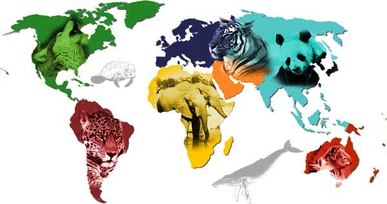
CAMPAIGNING FOR ENDANGERED SPECIES
Habitat loss is the primary cause of higher extinction rates. Other causes include habitat changes, over-exploitation of wildlife for commercial purposes, the introduction of harmful nonnative species, pollution, and the spread of diseases.
The race against extinction is urgent and immediate, and the campaign to protect these endangered and exploited species needs your financial support and commitment. Your support allows us to make an impact in saving endangered animals. Funds raised will be used to support ballot measures, lobbying efforts, and other advocacy activities in support of laws protecting endangered species.
Together, we can make a real difference in saving animals facing the threat of extinction.
Habitat loss is the primary cause of higher extinction rates. Other causes include habitat changes, over-exploitation of wildlife for commercial purposes, the introduction of harmful nonnative species, pollution, and the spread of diseases.
The race against extinction is urgent and immediate, and the campaign to protect these endangered and exploited species needs your financial support and commitment. Your support allows us to make an impact in saving endangered animals. Funds raised will be used to support ballot measures, lobbying efforts, and other advocacy activities in support of laws protecting endangered species.
Together, we can make a real difference in saving animals facing the threat of extinction.

CAMPAIGNING FOR INDIGENOUS PEOPLES
We are campaigning for tribal peoples' rights worldwide. 150 million tribal people live in more than 60 countries across the world.
Although their land ownership rights are recognised in international law, they are not properly respected anywhere.
Our vision is for a world where tribal peoples are recognised and respected and a world where tribal peoples are free to live on their on lands, safe from violence, oppression and exploitation.
We believe that all countries must support and uphold the UN Declaration on the Rights of Indigenous Peoples.
We also believe that all companies and organisations operating in tribal areas must adopt, as a formal and binding policy, the commitment that they will take no action without the free, prior and informed consent of the tribal people.
We stress that companies should not operate in tribal areas without first having clear, written, binding agreements, agreed only after the tribal people have obtained independent expert advice.
We are campaigning for tribal peoples' rights worldwide. 150 million tribal people live in more than 60 countries across the world.
Although their land ownership rights are recognised in international law, they are not properly respected anywhere.
Our vision is for a world where tribal peoples are recognised and respected and a world where tribal peoples are free to live on their on lands, safe from violence, oppression and exploitation.
We believe that all countries must support and uphold the UN Declaration on the Rights of Indigenous Peoples.
We also believe that all companies and organisations operating in tribal areas must adopt, as a formal and binding policy, the commitment that they will take no action without the free, prior and informed consent of the tribal people.
We stress that companies should not operate in tribal areas without first having clear, written, binding agreements, agreed only after the tribal people have obtained independent expert advice.
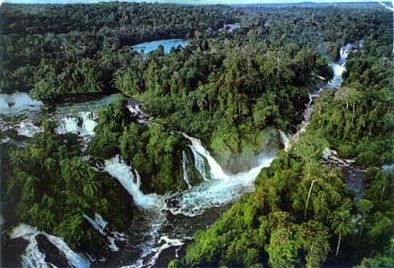
RAINFOREST PROTECTION
Every year an area of rainforest the size of Wales and England is cut down.
This leaves people homeless and drives animals and plants to extinction.
Tropical deforestation is an issue that affects all of us. It needs to be tackled locally and globally. Whilst some of our partners work locally by helping forest communities to gain land rights, challenging logging companies and managing forests, we campaign globally to influence national and international laws to protect rainforests and their inhabitants.
The best way to protect the rainforests is to let the indigenous people, who have inhabited the areas for centuries, control and manage the land. Education and lobbying, based on local experience, can provide the most effective tools for lasting change.
Every year an area of rainforest the size of Wales and England is cut down.
This leaves people homeless and drives animals and plants to extinction.
Tropical deforestation is an issue that affects all of us. It needs to be tackled locally and globally. Whilst some of our partners work locally by helping forest communities to gain land rights, challenging logging companies and managing forests, we campaign globally to influence national and international laws to protect rainforests and their inhabitants.
The best way to protect the rainforests is to let the indigenous people, who have inhabited the areas for centuries, control and manage the land. Education and lobbying, based on local experience, can provide the most effective tools for lasting change.
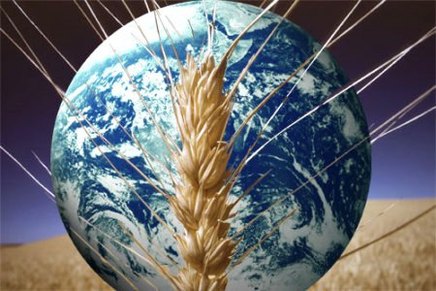
GLOBAL FOOD SECURITY
Addressing the challenge of global food security through the twenty first century is linked with other global issues, most notably climate change, population growth and the need to sustainably manage the world's rapidly growing demand for energy and water. Global progress in ensuring a sustainable and equitable food supply chain will be determined by how coherently these long term challenges are tackled.
The challenge is to deliver nutritious, safe and affordable food to a global population of over 9 billion in coming decades, using less land, fewer inputs, with less waste and a lower environmental impact. It is clear that research is vital to meeting this challenge.
All this has to be done in ways that are socially and economically sustainable.
Global food security is fast becoming one of the most pressing challenges facing states today. The scope and the breadth of the issue encompasses all the peoples and the governments of the world and demography is the driving factor pushing it to the top of the agenda.
The human population is set to surpass the 9 billion mark midway through the century, with the attendant cost of ever greater pressure applied to the Earth's finite resources.
The challenge facing us is to be able to feed humanity in a sustainable manner and one that does not threaten the precarious balance of our ecosystems. Climate change is the other defining source of stress with its manifold repercussions upon water access and supply, the spread of pests and disease and the potential for ever more extreme and unpredictable weather patterns.
The UN estimated that almost one billion people are chronically hungry and malnourished in the world and over 6 million children die each year due to starvation. At the same time around 1 billion people around the world are suffering from obesity. Judging by current trends this number is set to rise in the near future.
Recent climactic developments have also given both humanitarians and policy-makers alike more serious cause for concern.
At a time when the recession is biting in many parts of the world, and where booming populations have already made food scarce and prices high, this crisis could have extremely severe humanitarian, and indeed strategic, implications. Global food security is, obviously, one of the key issues for the future of humanity, along with water, climate, and peace and security.
If we look globally, the situation around poverty and hunger seems to be similar around the globe. We have resistant poverty in sub- Saharan Africa - similar figures to 1990. In South Asia we have achieved reductions in the percentage that are poor, but given that there are so many people living in South Asia, the numbers are still very high.
Poverty in Sub- Saharan Africa has proven itself to be very resilient and hunger has remained very high, with 25% of the population hungry at any time. According to our research, there are still 29 countries across the globe where levels of malnutrition are very alarming.
There is a pressing need to ensure adequate nutrition, including not only calories but all necessary macro and micro nutrients for healthy and balanced diets and for populations throughout the world.
At the same time as increasing numbers of people globally are inadequately fed, the over- consumption of high calorie diets adds to the rising demand for food, with all the associated economic, social and environmental impacts.
The most important challenges arising are:
*The world will need to produce more food in the future using less water, land, fertiliser, energy and other inputs, and distribute that food more efficiently and equitably.
*We need to reduce losses, waste and other adverse environmental impacts - throughout the food supply chain, from production to consumption and waste management.
*Food must be safe, nutritious and affordable, and be supplied and distributed in ways that meet the needs and aspirations of consumers in different economic, social and cultural contexts around the world. People need to be well informed and helped to make healthy choices.
*There is a need to balance different uses of land and seas, often with competing priorities, such as sustainably increasing food production while maintaining ecosystem services on which food production critically depends.
*There is an urgent priority to balance increased productivity from food producing animals with their welfare, recognising that absence of disease and high productivity do not always equate with high welfare standards and outcomes.
*The complex and interrelated problems outlined above can only be tackled through coordinated and integrated interdisciplinary research, coupled with its effective translation into practice and policy.
*Our aim is to help to improve the sustainability and security of UK and global food supplies.
*The challenges range from those with a local or UK national focus to more wide-ranging European and global issues. Food security for the UK is inextricably linked to global production, demand and supply and must be considered in this broader context.
*We are highlighting the key need for UK research in helping to address the global challenges, especially those of developing countries.
Addressing the challenge of global food security through the twenty first century is linked with other global issues, most notably climate change, population growth and the need to sustainably manage the world's rapidly growing demand for energy and water. Global progress in ensuring a sustainable and equitable food supply chain will be determined by how coherently these long term challenges are tackled.
The challenge is to deliver nutritious, safe and affordable food to a global population of over 9 billion in coming decades, using less land, fewer inputs, with less waste and a lower environmental impact. It is clear that research is vital to meeting this challenge.
All this has to be done in ways that are socially and economically sustainable.
Global food security is fast becoming one of the most pressing challenges facing states today. The scope and the breadth of the issue encompasses all the peoples and the governments of the world and demography is the driving factor pushing it to the top of the agenda.
The human population is set to surpass the 9 billion mark midway through the century, with the attendant cost of ever greater pressure applied to the Earth's finite resources.
The challenge facing us is to be able to feed humanity in a sustainable manner and one that does not threaten the precarious balance of our ecosystems. Climate change is the other defining source of stress with its manifold repercussions upon water access and supply, the spread of pests and disease and the potential for ever more extreme and unpredictable weather patterns.
The UN estimated that almost one billion people are chronically hungry and malnourished in the world and over 6 million children die each year due to starvation. At the same time around 1 billion people around the world are suffering from obesity. Judging by current trends this number is set to rise in the near future.
Recent climactic developments have also given both humanitarians and policy-makers alike more serious cause for concern.
At a time when the recession is biting in many parts of the world, and where booming populations have already made food scarce and prices high, this crisis could have extremely severe humanitarian, and indeed strategic, implications. Global food security is, obviously, one of the key issues for the future of humanity, along with water, climate, and peace and security.
If we look globally, the situation around poverty and hunger seems to be similar around the globe. We have resistant poverty in sub- Saharan Africa - similar figures to 1990. In South Asia we have achieved reductions in the percentage that are poor, but given that there are so many people living in South Asia, the numbers are still very high.
Poverty in Sub- Saharan Africa has proven itself to be very resilient and hunger has remained very high, with 25% of the population hungry at any time. According to our research, there are still 29 countries across the globe where levels of malnutrition are very alarming.
There is a pressing need to ensure adequate nutrition, including not only calories but all necessary macro and micro nutrients for healthy and balanced diets and for populations throughout the world.
At the same time as increasing numbers of people globally are inadequately fed, the over- consumption of high calorie diets adds to the rising demand for food, with all the associated economic, social and environmental impacts.
The most important challenges arising are:
*The world will need to produce more food in the future using less water, land, fertiliser, energy and other inputs, and distribute that food more efficiently and equitably.
*We need to reduce losses, waste and other adverse environmental impacts - throughout the food supply chain, from production to consumption and waste management.
*Food must be safe, nutritious and affordable, and be supplied and distributed in ways that meet the needs and aspirations of consumers in different economic, social and cultural contexts around the world. People need to be well informed and helped to make healthy choices.
*There is a need to balance different uses of land and seas, often with competing priorities, such as sustainably increasing food production while maintaining ecosystem services on which food production critically depends.
*There is an urgent priority to balance increased productivity from food producing animals with their welfare, recognising that absence of disease and high productivity do not always equate with high welfare standards and outcomes.
*The complex and interrelated problems outlined above can only be tackled through coordinated and integrated interdisciplinary research, coupled with its effective translation into practice and policy.
*Our aim is to help to improve the sustainability and security of UK and global food supplies.
*The challenges range from those with a local or UK national focus to more wide-ranging European and global issues. Food security for the UK is inextricably linked to global production, demand and supply and must be considered in this broader context.
*We are highlighting the key need for UK research in helping to address the global challenges, especially those of developing countries.
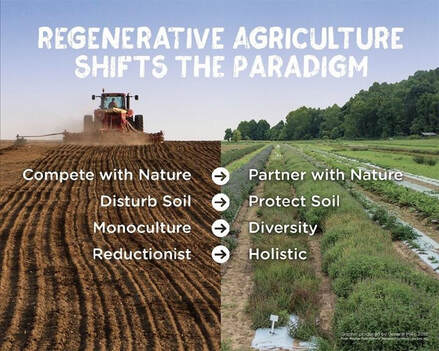
Agroecology
Transition towards sustainable agriculture
Agroecology is a holistic approach that relies on and maximizes the use of ecological processes to support agricultural production. By working more with nature and ecosystem services, agroecology has the potential to increase the circularity, diversification and autonomy of farms, and drive a full transformation of farming systems and agricultural value chains, from input substitution and beyond. Agroecological farming systems therefore have great potential to enhance the sustainability performance of agriculture and agricultural value chains contribute to the objectives of the Farm to Fork Strategy.
SPF is contributing to Research & Innovation, which will speed up the transition to sustainable and competitive agriculture by unlocking the potential of agroecology, including enhancing organic farming in the agroecological transitions, increasing plant proteins and advancing digital and data technologies as enablers.
Transition towards sustainable agriculture
Agroecology is a holistic approach that relies on and maximizes the use of ecological processes to support agricultural production. By working more with nature and ecosystem services, agroecology has the potential to increase the circularity, diversification and autonomy of farms, and drive a full transformation of farming systems and agricultural value chains, from input substitution and beyond. Agroecological farming systems therefore have great potential to enhance the sustainability performance of agriculture and agricultural value chains contribute to the objectives of the Farm to Fork Strategy.
SPF is contributing to Research & Innovation, which will speed up the transition to sustainable and competitive agriculture by unlocking the potential of agroecology, including enhancing organic farming in the agroecological transitions, increasing plant proteins and advancing digital and data technologies as enablers.

OCEAN JUSTICE ADVOCACY
Understanding the big picture is important in our journey of being ocean advocates and protectors. By educating about the disproportionate impact issues like rising seas, climate change, and marine debris have on marginalized and low-income communities, we at SPF can advocate and raise awareness for equitable solutions to conservation issues with the specific and measurable goals. OCEAN JUSTICE ADVOCACY Protect the ocean and the benefits it provides for all. National and international policies to protect and restore oceans’ health must include the perspectives and leadership of ocean justice communities and provide equitable access to ocean resources. Alleviate the disproportionate burden of pollution on ocean justice communities: Pollution from fossil fuels, agricultural runoff & plastics etc Promote an economy that sustains the oceans and communities that rely on it It is the responsibility of policymakers to include communities in decision-making and ensure they can support their historic and traditional ways of life.
Understanding the big picture is important in our journey of being ocean advocates and protectors. By educating about the disproportionate impact issues like rising seas, climate change, and marine debris have on marginalized and low-income communities, we at SPF can advocate and raise awareness for equitable solutions to conservation issues with the specific and measurable goals. OCEAN JUSTICE ADVOCACY Protect the ocean and the benefits it provides for all. National and international policies to protect and restore oceans’ health must include the perspectives and leadership of ocean justice communities and provide equitable access to ocean resources. Alleviate the disproportionate burden of pollution on ocean justice communities: Pollution from fossil fuels, agricultural runoff & plastics etc Promote an economy that sustains the oceans and communities that rely on it It is the responsibility of policymakers to include communities in decision-making and ensure they can support their historic and traditional ways of life.

Treesisters
Bianca is one of the founding members of TreeSisters.(www.treesisters.org) Our vision is to ethically expand the green cover of the planet. We are seeking to educate and inspire on the importance of reconnecting and living in alignment with our environment. Treesisters' mission is to work in harmony with trees and their communities. We are taking meaningful and direct action through ethical reforestation to protect and restore species and habitats, and working with planting partners who recreate and restore natural forest ecosystems, foster local knowledge and skills and promote women's participation. We are always striving to ensure all projects we partner with plant intelligently, appropriately, respectfully and successfully. TreeSisters selects and monitors projects to ensure that they are ethical, community-led and promote women's participation. Rather than focusing solely on the number of trees in the ground, we strive to ensure projects improve socioeconomic outcomes and have women, community and nature at their core. We are on a path of continuous learning and consistently seek to be egocentric, in its broadest sense, and anti-colonial in our approach to tree planting. Our ethics and values guide us towards a robust monitoring and evaluation system to ensure a real and tangible difference all over the world.
Bianca is one of the founding members of TreeSisters.(www.treesisters.org) Our vision is to ethically expand the green cover of the planet. We are seeking to educate and inspire on the importance of reconnecting and living in alignment with our environment. Treesisters' mission is to work in harmony with trees and their communities. We are taking meaningful and direct action through ethical reforestation to protect and restore species and habitats, and working with planting partners who recreate and restore natural forest ecosystems, foster local knowledge and skills and promote women's participation. We are always striving to ensure all projects we partner with plant intelligently, appropriately, respectfully and successfully. TreeSisters selects and monitors projects to ensure that they are ethical, community-led and promote women's participation. Rather than focusing solely on the number of trees in the ground, we strive to ensure projects improve socioeconomic outcomes and have women, community and nature at their core. We are on a path of continuous learning and consistently seek to be egocentric, in its broadest sense, and anti-colonial in our approach to tree planting. Our ethics and values guide us towards a robust monitoring and evaluation system to ensure a real and tangible difference all over the world.
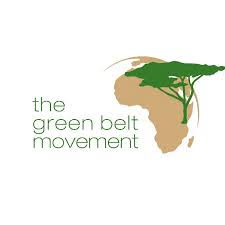
Green Belt Movement
SPF is proudly continuing and building on the work of the Nobel Prize winner Dr Wangari Maatthai, the Green Belt Movement,
within the four main areas of activity:
1. Planting and Water Harvesting
2. Climate Change
3. Mainstream Advocacy
4. Gender Livelihood and Advocacy. Each area of work builds on and informs the others.
SPF is proudly continuing and building on the work of the Nobel Prize winner Dr Wangari Maatthai, the Green Belt Movement,
within the four main areas of activity:
1. Planting and Water Harvesting
2. Climate Change
3. Mainstream Advocacy
4. Gender Livelihood and Advocacy. Each area of work builds on and informs the others.
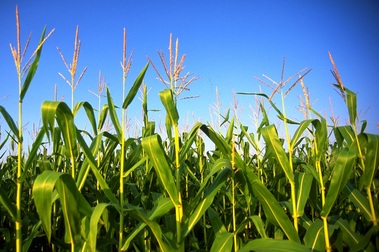
GM FOOD
We all have the right to eat and plant GM-free food.
Sustainable Planet Foundation is campaigning to protect your choices from corporate interests to secure safe, sustainable agriculture for all. We are calling for a moratorium on GM food and crops until it is clearly and independently proven safe. We are looking for public involvement in decisions about GM, laws to make GM companies liable for harm their products cause and independent safety research on GM and its impacts.
We all have the right to eat and plant GM-free food.
Sustainable Planet Foundation is campaigning to protect your choices from corporate interests to secure safe, sustainable agriculture for all. We are calling for a moratorium on GM food and crops until it is clearly and independently proven safe. We are looking for public involvement in decisions about GM, laws to make GM companies liable for harm their products cause and independent safety research on GM and its impacts.
